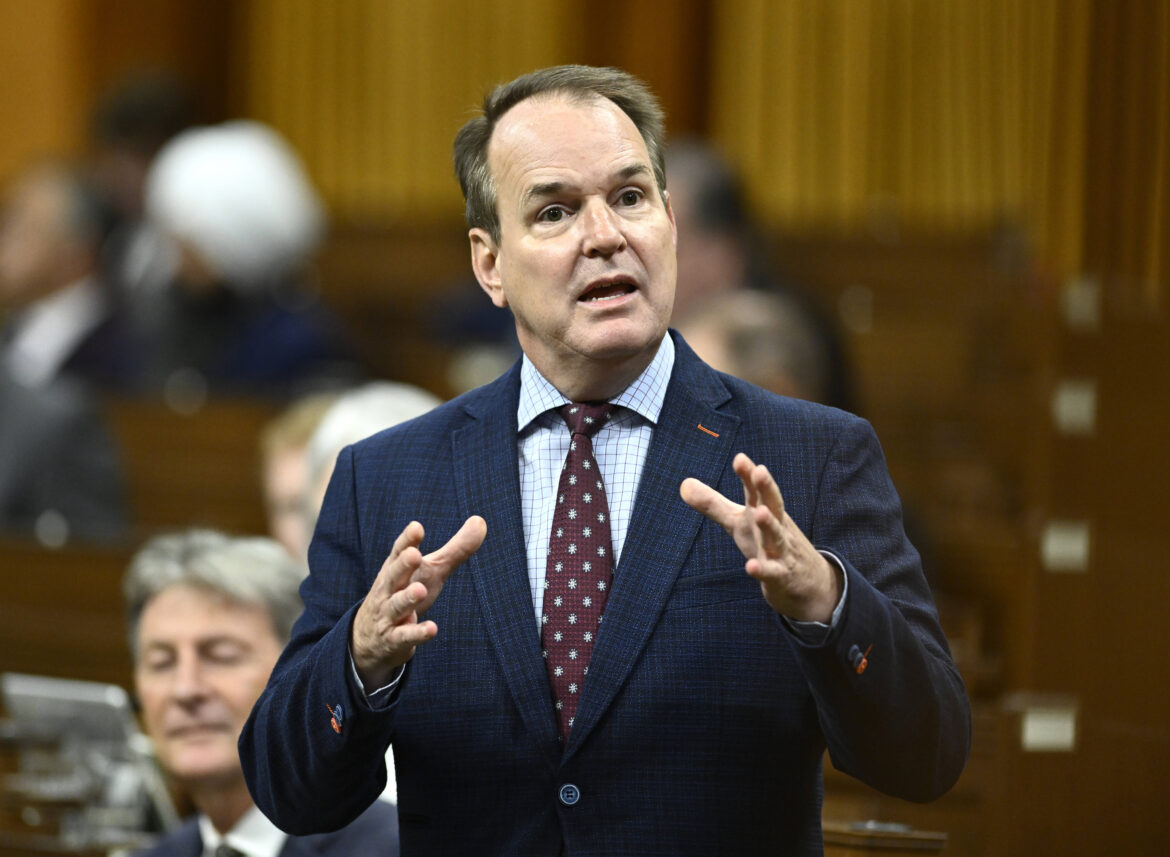By Christopher Reynolds
Federal Labour Minister Steven MacKinnon says contract talks at the Port of Montreal have reached an impasse as he tries to convince dockworkers and their employers to reset relations.
With negotiations faltering, MacKinnon told reporters Wednesday his proposal to appoint a special mediator and bar work stoppages for 90 days aims to rekindle hopes for a deal down the line.
“These are very challenging talks, I won’t try and sugar-coat it,” he said outside a workforce summit in Montreal.
“We’ve hit a bit of a logjam, and we need some new momentum.”
MacKinnon said both sides need to “take a timeout” and “get serious,” adding that a new mediator could inject fresh energy into the stop-and-go discussions.
“Sometimes you just need a change of scenery. And in this case, what we’ve proposed to the parties is that we do just that — we mix it up a little bit.”
The Maritime Employers Association and the union have until Friday to accept or reject the minister’s offer. Both sides say they are considering it.
Nearly 1,200 dockworkers launched a strike on overtime shifts at the port last Thursday, a week after some 350 of them walked off the job at two container terminals for three days.
The union has said the main stumbling blocks relate to wages, unpredictable shifts and the reduced use of senior forepersons during operations.
The three-day job action that began on Sept. 30 halted activities at terminals that handle 41 per cent of container traffic at the country’s second-largest port, the employers association said.
The organization, which represents shipping companies and port operators, struck back on the subsequent overtime strike by warning that employees assigned to shifts with incomplete crews will not be paid because they slow or stop the flow of freight.
Lisa Djevahirdjian, a spokeswoman for the union local, which is affiliated with the Canadian Union of Public Employees, said that “no one has been affected in this way” so far.
The minister brought both sides together for a sit-down in Montreal on Tuesday, according to the association and MacKinnon. However, the union says actual bargaining, overseen by two federal mediators, has ground to a halt.
“There have been no talks. That’s why the minister stepped in with this suggestion. The two former mediators could not go any further,” Djevahirdjian said.
Montreal longshore workers have been without a contract since Dec. 31.
Both sides would be entitled to launch a work stoppage after the three-month mediation period ends if no deal is reached, MacKinnon confirmed.
While special mediators are sometimes kitted with additional powers, the minister did not specify any when asked about this case. Rather, he said the would-be swap could “bring some new energy” to talks that have grown acrimonious.
Ulrich Paschen, an instructor at the Melville School of Business at Kwantlen Polytechnic University in Surrey, B.C., said mediators act as “a neutral third party that keeps everybody honest.”
“Think of it as your therapist trying to direct the discussion so that it remains focused on the issues at hand,” he said.
The deadlock follows more than a year of on-again, off-again talks. The saga included a failed request by the employers association that the federal labour tribunal deem port work an essential service in a bid to prevent a strike on the waterfront. The process — the association’s second ask on that front in five years — took months.
Paschen said labour talks are growing testier with less tolerance for quick compromise, due in part to political and economic forces.
“Employers, by and large, are seeing political winds of change. They are suspecting that a Conservative government is somewhere on the horizon sooner or later which will hold views more favourable to their standpoints,” Paschen said.
Meanwhile, employees frustrated by inflation and higher interest rates are demanding more out of their collective agreements, he said, particularly in the transport sector.
The past 16 months have seen a work stoppage at the country’s two main railways, an eight-day strike by employees on the locks of the St . Lawrence Seaway and a 13-day strike by B.C. dockworkers that shut down West Coast ports.
“For the better part of a decade, the parties to a labour dispute have been able to settle those disputes, and now they’re becoming less conciliatory,” Paschen said.






